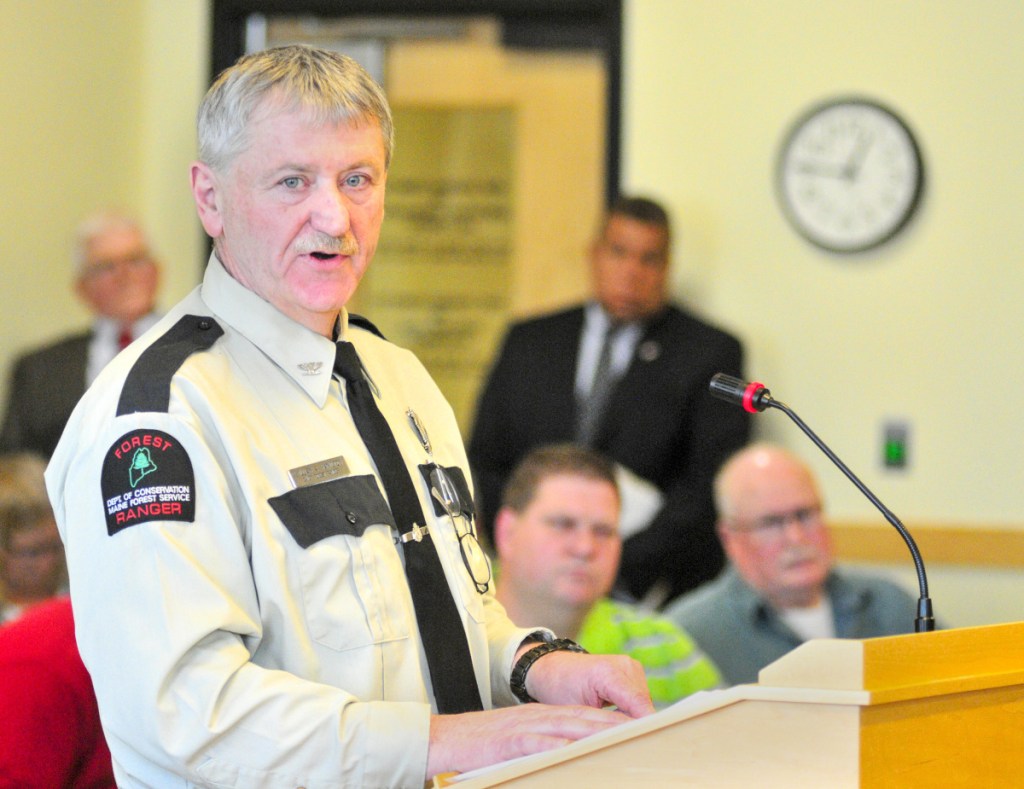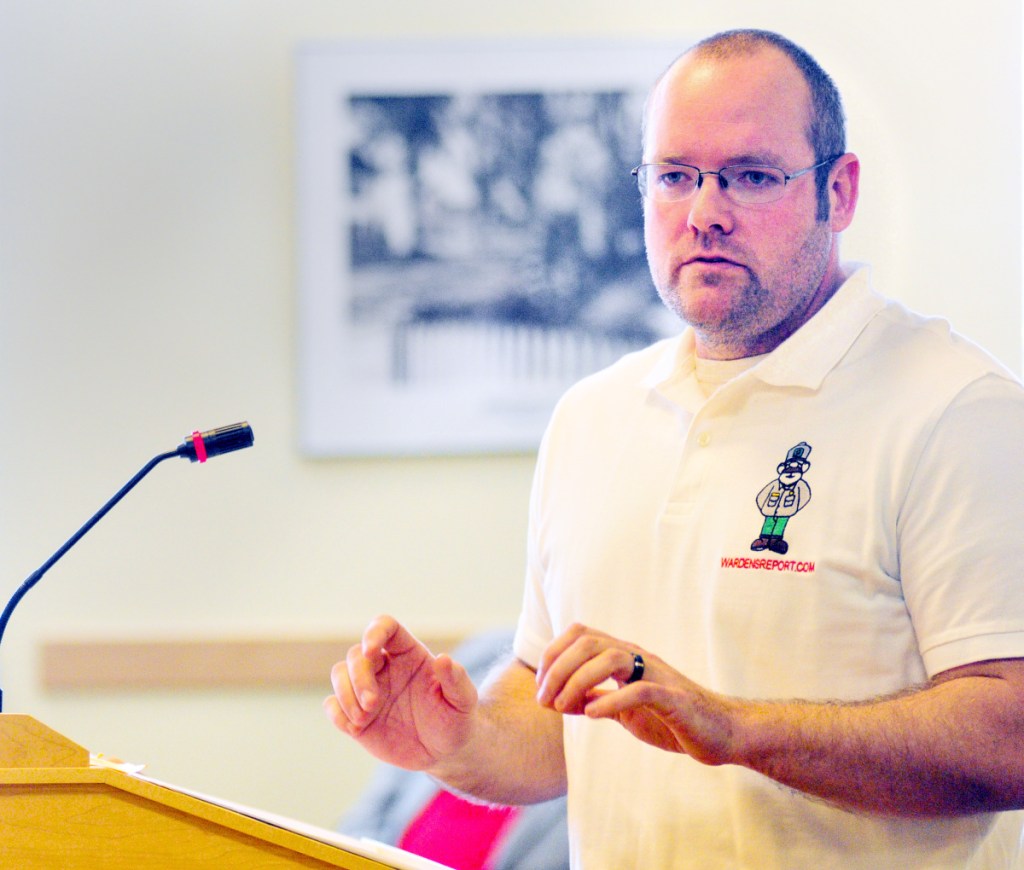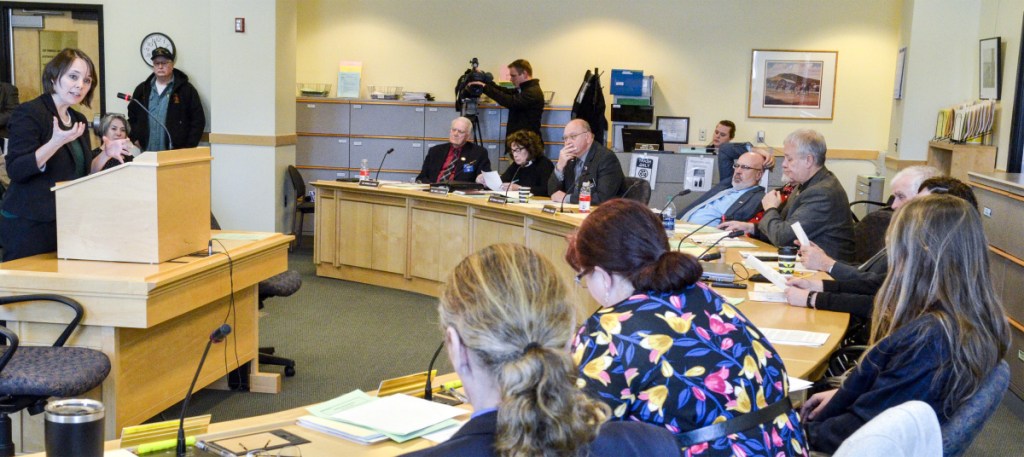AUGUSTA — The sharp disagreement over how online burn permits are issued in Maine played out Thursday in a legislative hearing that brought members of the Maine Forest Service and developers of private, online permit-issuing systems into the same room for the first time in months.
In the wake of emergency legislation enacted at the end of last year’s legislative session that legalized the use of private systems, the creators of two online services said they have tried to set up meetings with state forestry officials, but their requests have gone unanswered.
What brought them together at a public hearing before the Committee on Agriculture, Conservation and Forestry is L.D. 1809, which would require the director of the Bureau of Forestry to allow municipalities to use burn permit software if it meets standards set out in state law and allows residents to obtain permits free.
Fire wardens would have to ask the director to review the software within 10 days to determine whether it meets state requirements. The bill also authorizes the director to adopt rules about burn permit software requirements. The Maine Forest Service has maintained that its own online system is the only legitimate method to get a permit for open burns, despite lawmakers saying they disagree.
“This bill makes it clear you can use online permit systems,” said Sen. Tom Saviello, R-Wilton, the bill’s sponsor.
Saviello, who also serves on the Committee on Agriculture, Conservation and Forestry, said that Forest Service requirements issued in August were only guidelines because they didn’t go through a formal rule-making process.
Chief Forest Ranger Bill Hamilton urged lawmakers to lift the $7 charge on the state’s online permits – the private services offer them free to state residents – to defeat the private-permit proposal.
“It’s obvious that there are misunderstandings about the state site,” Hamilton said.
The state system allows residents to get a two-day burn permit for $7, a portion of which goes back to the municipality where the permit is issued. He said it offers most of the same features as the private systems.
Following some catastrophic wildfires in the 1940s, Hamilton said, the state moved to a centralized system of issuing burn permits, and allowing private companies to issue burn permits undermines that.
The authority to issue burn permits rests with the Maine Forest Service. Anyone burning brush, wood debris, grass or agricultural fields in Maine needs a permit issued either by the Forest Service or his or her own city or town. The Forest Service imposes a number of regulations on how and when open burns may take place; the state limits them to after 5 p.m., but local fire chiefs have discretion to allow them at other times.
The Forest Service director may delegate his or her authority under state law to town forest fire wardens and their deputies for paper permits only, which the Forest Service supplies. State residents may obtain paper permits at no cost from a fire warden – often a fire chief or his or her designee – or from a Maine forest ranger.
State forestry officials have warned that those who use private systems such as Warden’s Report and Burning Permits could be guilty of a misdemeanor.
West Gardiner Fire Chief Gary Hickey, one of the creators of Warden’s Report, said his system offers more control than the state’s system, and saves money for communities that otherwise would have to pay town workers to issue paper permits.
Those paper permits sparked the idea for the online system. He and fellow West Gardiner firefighter Chris McLaughlin were looking for a way to get the data collected through issuing paper permits to the Forest Service in real time; copies of paper permits remain at the fire station until they are submitted to the Forest Service. That means the information on the paper permits is unavailable for anyone’s review unless they go to where the paper permits are stored.
Matthew Scott, who with a developer created Burning Permits, initially was authorized by the state to develop an online system through a request for proposal; but after a year, he had no contract with the state.
“The Maine Forest Service system was not designed for fire wardens,” he said. “It was made for bureaucrats to collect money.”
While both systems were created with the knowledge of the Forest Service, the service later acknowledged they were created in error.
Fire chiefs from around the state lined up to speak for the third-party systems, saying they make obtaining burn permits easier and have cut down on the instances of illegal burns. They also save department time and money because it’s easy to track whether a permit has been issued when they receive a report of a smoke sighting, and that cuts down on the number of their emergency responses, they said.
The Committee on Agriculture, Conservation and Forestry will take up the bill again in a work session scheduled for Feb. 20.
Copy the Story LinkSend questions/comments to the editors.





Success. Please wait for the page to reload. If the page does not reload within 5 seconds, please refresh the page.
Enter your email and password to access comments.
Hi, to comment on stories you must . This profile is in addition to your subscription and website login.
Already have a commenting profile? .
Invalid username/password.
Please check your email to confirm and complete your registration.
Only subscribers are eligible to post comments. Please subscribe or login first for digital access. Here’s why.
Use the form below to reset your password. When you've submitted your account email, we will send an email with a reset code.